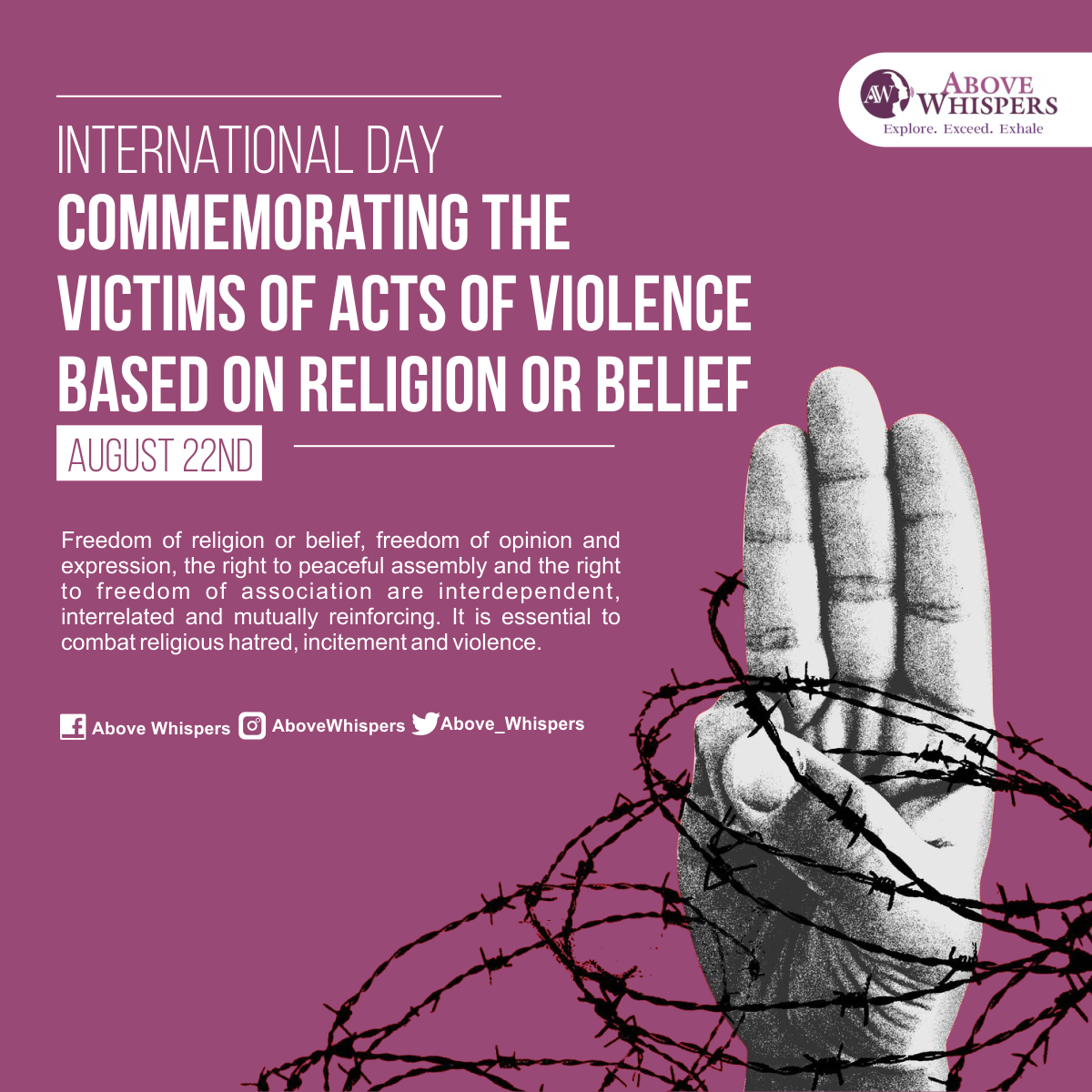Background
The General Assembly, in its resolution A/RES/73/296, designated 22 August as the International Day Commemorating the Victims of Acts of Violence Based on Religion or Belief recognizing the importance of providing victims of acts of violence based on religion or belief and members of their families with appropriate support and assistance in accordance with applicable law.
It strongly deplored all acts of violence against persons on the basis of their religion or belief, as well as any such acts directed against their homes, businesses, properties, schools, cultural centres or places of worship, as well as all attacks on and in religious places, sites and shrines that are in violation of international law.

A previous resolution establishing the International Day of Remembrance of and Tribute to the Victims of Terrorism (A/RES/72/165) also recognized that working together to enhance the implementation of existing legal regimes that protect individuals against discrimination and hate crimes, increasing interreligious, interfaith and intercultural efforts and expanding human rights education are important first steps in combating incidents of intolerance, discrimination and violence against individuals on the basis of religion or belief.
By proclaiming an International Day Commemorating the Victims of Acts of Violence Based on Religion or Belief, the General Assembly recalled that States have the primary responsibility to promote and protect human rights, including the human rights of persons belonging to religious minorities, including their right to exercise their religion or belief freely.
THE MESSAGE
The right to freedom of religion or belief is firmly trenched in international human rights law and is a cornerstone for inclusive, prosperous and peaceful societies.
Yet across the world, we continue to witness deep-seated discrimination against religious minorities, attacks on people and religious sites, and hate crimes and atrocity crimes targeting populations simply because of their religion or belief.
While societies have shown resilience and strength in the face of COVID-19, the pandemic has also been accompanied by a surge in stigma and racist discourse vilifying communities, spreading vile stereotypes and assigning blame.
As we commemorate the victims, we must do more to address the root causes of intolerance and discrimination by promoting inclusion and respect for diversity. We must also ensure that the perpetrators of these crimes are held accountable.
States have the primary responsibility to protect the right to freedom of religion and belief. I have also made this a priority through initiatives such as a Call to Action for Human Rights, a Strategy on Hate Speech and a Plan of Action to Safeguard Religious Sites.
This extraordinary moment calls on all of us to work together as one human family to defeat a disease and put an end to hate and discrimination.

